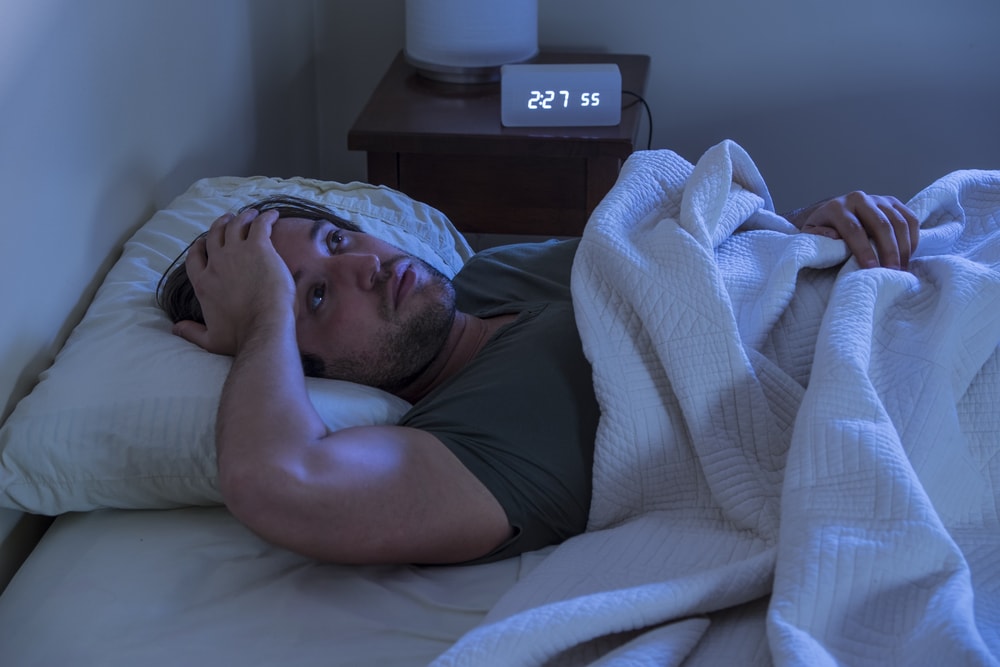Do you struggle to get to sleep no matter how tired you are? Or do you wake up in the middle of the night and lie awake for hours, anxiously watching the clock?
Insomnia is the inability to get the amount of sleep you need to wake up feeling rested and refreshed. Because different people need different amounts of sleep, insomnia is defined by the quality of your sleep and how you feel after sleeping—not the number of hours you sleep or how quickly you doze off. Even if you’re spending eight hours a night in bed, if you feel drowsy and fatigued during the day, you may be experiencing insomnia.
Read on for my tips for getting to sleep, and getting back to sleep if you wake in the middle of the night…
Stop Insomnia Without Medication
Sleeplessness is a common problem that takes a toll on your energy, mood, health, and ability to function during the day. Fortunately, you don’t have to resign yourself to sleepless nights. Simple changes to your lifestyle and daily habits can put a stop to sleeplessness without the need for medication.
Symptoms of not sleeping well include:
- difficulty in falling asleep despite being tired,
- having trouble getting back to sleep when waking in the middle of the night,
- waking up too early in the morning,
- relying on sleeping pills or alcohol to fall asleep,
- feeling tired even after a nights sleep,
- daytime drowsiness, fatigue or irritability,
- difficulty concentrating during the day.
8 Tips For Dropping Of To Sleep:
- Wind-down for at least 30 minutes before you go to bed with a warm drink (caffeine free) or by reading a book. Switch off the bright lights and don’t do anything that keeps you alert,
- Switch off all your electronic devices like computers and phones as the illuminated screens on these devices can keep you alert and makes it harder for your brain to switch off,
- Keep a notepad by your bedside to write a list of things that are going through your mind that is keeping you up at night,
- If you go to bed at night and don’t fall asleep for 20- 30 minutes, go to the living room and read or listen to some relaxing music. There is no point lying in bed as it can build an unhealthy connection between your wakefulness and sleeping. Use your bed for sleeping so your brain associates it to going to sleep,
- Try to go bed at the same time every night and wake up at the same time as well. This creates a routine and it will adjust your body clock accordingly,
- Stressful activity like reading a report or trying to sort a work issue can keep you up, so create a routine that you will stop work at a specific time at night,
- Try to avoid late meals before going to bed. Foods rich in fat are difficult to digest and spicy or acidic foods can give you heartburn that will keep you awake at night,
- Exercising regularly can help with your insomnia symptoms, promoting activity during the day, but not near your bedtime.
5 Tips For Going Back To Sleep When You Wake Up In The Middle Of The Night:
- Avoid drinking coffee after a certain time at night as it promotes wakefulness,
- Get some blackout blinds as that your environment around bedtime is dark and quiet. Block out all sounds that can disturb your sleep routine,
- Practice a deep breathing technique,
- If you still cannot fall asleep for 20 – 30 minutes, get out of bed and read in another room until you feel tired again and then go to bed,
- Write down everything that is worrying you and keeping you awake to deal with in the morning.
Relaxation and mindfulness techniques can harness the body’s natural relaxation response and help when you feel wound up and tense, feeling unable to let go of stress and anxious thoughts at the end of the day. These techniques will help to calm and quieten your mind, relieve your stress and tension in your body. This will help you get to sleep quicker and if you wake up at night you will be able to fall back to sleep.
Try some of these breathing techniques to help with your sleep routine:
- Abdominal breathing: Close your eyes and take a deep breath in, not only through your chest but also your abdomen, ribcage and lower back. Make sure each breath is slow, breath deeply in through the nose and breath out slowly through the mouth.
- Mindfulness and meditation: Sit down quietly and focus your attention on your breathing and how you feel at that moment. Allow all your emotions and thoughts to flow naturally without stopping them or judging them and when your attention drifts away to bring your focus back to your breath.
- Muscle relaxation: Start from the top of your head and progressively tense your muscles to the count of ten and relax to the count of ten, relaxing all your muscles from the head down to the tips of your toes. Do this for all your muscle groups in the body so that you feel relaxed and calm before going to bed.
Cognitive behaviour therapy (CBT) can also break the cycle of sleeplessness. Regular practice of the above techniques together with CBT can relieve stress and anxiety. This practice becomes a part of your routine and you are able to relax when you go to bed and fall asleep easily, also when you wake up in the middle of the night.
If you would like to explore how hypnotherapy can help you sleep better at night, click here. To speak to me in confidence about any issues that are worrying you, please call 0796 715 1790 or email info@formindssake.com


Recent Comments